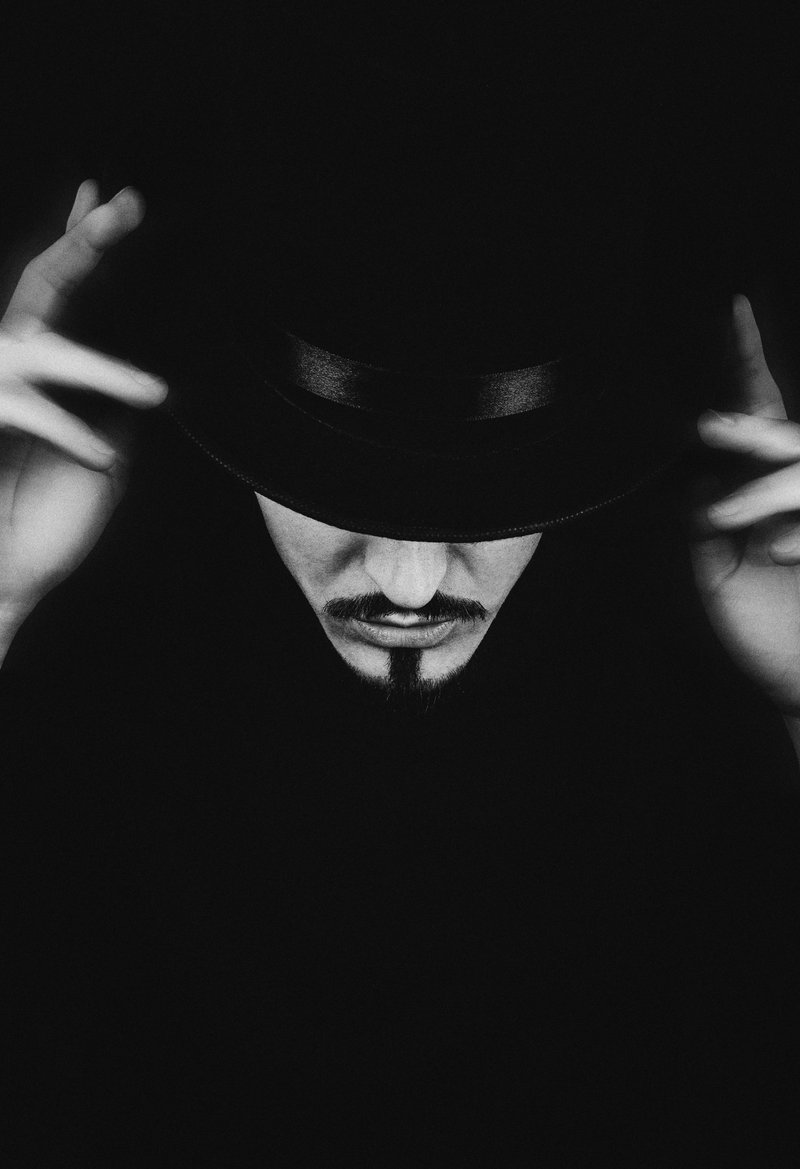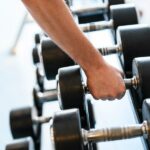🔥 Rekindle the Fire: How Men Over 40 Can Take Back Their Desire
It’s no secret that many men experience changes in their libido as they age—but what exactly happens to your sex drive after 40? The truth is, it’s not just about getting older. Hormones, lifestyle, stress, and mindset all play a role in how you feel about sex in your 40s and beyond.
Understanding the Role of Testosterone
Testosterone is the primary hormone responsible for libido, erectile function, and overall male vitality. After age 30, testosterone levels naturally decline at a rate of about 1% per year. By your 40s, that drop can start to affect your sex drive—especially if lifestyle habits aren’t supporting hormonal health.
How Aging Affects Sexual Performance
Lower testosterone isn’t the only factor. Circulation may slow, recovery takes longer, and stress can become chronic. All of this impacts your desire and performance. But here’s the good news: you’re not doomed. Men in their 40s, 50s, and even 60s can experience better sex than they did in their 20s—if they take care of their health.
Signs of Low Sex Drive After 40
- Less frequent sexual thoughts or fantasies
- Takes longer to get aroused or stay aroused
- Lower energy and motivation
- Weaker or less spontaneous erections
- Decline in morning wood frequency
Is It Normal to Lose Libido at 40?
It’s common—but not inevitable. What’s considered “normal” is often just common dysfunction. There’s nothing natural about giving up on sex at 40. The key is understanding what your body needs and adjusting your approach accordingly.
What Really Causes Low Libido After 40?
Sex drive is affected by more than just hormones. Lifestyle choices play a huge role. Here are the main culprits that kill libido after 40:
- Chronic Stress: Elevates cortisol, which suppresses testosterone.
- Poor Diet: High sugar and processed foods tank hormone production.
- Alcohol and Smoking: Impair blood flow and sexual response.
- Obesity: Increases estrogen and lowers T levels.
- Lack of Sleep: Reduces testosterone and mood-regulating hormones.
How to Boost Sex Drive Naturally After 40
The good news? You can take back control. Here’s how:
- Get 7–9 hours of sleep consistently
- Eat testosterone-boosting foods (zinc, healthy fats, leafy greens)
- Train with weights 3–4x per week
- Manage stress with meditation or breathwork
- Limit alcohol, quit smoking, and hydrate well
Supplements That Can Help
Some natural supplements have been shown to support testosterone and libido in men over 40. Popular options include:
- Fenugreek
- Ashwagandha
- Maca root
- Vitamin D
- Zinc and Magnesium
These won’t work miracles overnight, but when combined with lifestyle upgrades, they can enhance energy and performance.
What About Morning Erections?
If you’re waking up without morning wood, it may signal declining testosterone or circulation. Learn what it means in our article on morning erections and how to restore them naturally.
What Sex Looks Like in Your 40s vs. Your 20s
In your 20s, libido is often spontaneous and aggressive. But in your 40s, it’s about quality over quantity. Many men report deeper satisfaction, stronger emotional connection, and more focused pleasure. Your stamina might change—but your confidence can peak if you train for it.
Don’t Confuse Energy with Drive
Many men think they’ve “lost their drive,” when in fact, they’re just drained. Fatigue from work, family, and poor recovery mimics low libido. Once you improve sleep, nutrition, and exercise, your sex drive often returns without needing drastic measures.
How Emotions Influence Desire
Men are emotional beings too. Disconnection, boredom, resentment, and low self-esteem can kill sexual desire. The good news? Rebuilding intimacy, challenging your own limiting beliefs, and reconnecting with your purpose can reignite internal fire.
Rebuild Confidence Through Routine
Try this powerful 3-step daily practice:
- Movement: Strength training or cardio
- Mindset: Read, reflect, or meditate
- Masculine ritual: Cold shower, grooming, dressing with intention
Small consistent actions rebuild your self-image—and with it, your desire to conquer in and out of the bedroom.
How Intermittent Fasting May Help
Some men over 40 experience a libido boost after adopting intermittent fasting. Why? Because it helps regulate insulin, reduce inflammation, and increase growth hormone—factors closely linked to sex drive and performance.
Recommended Reading
Concerned about other aspects of performance? Explore psychological causes of weak erections or understand how tight underwear may affect testosterone.
What Studies Say About Male Libido After 40
A study published in the Journal of Clinical Endocrinology & Metabolism found that men over 40 with higher levels of physical activity had significantly better sexual function, desire, and erectile quality. Another study from Harvard showed a strong link between diet quality and testosterone regulation.
Key Hormones That Impact Libido
- Testosterone: The obvious one—essential for desire and erections
- Dopamine: Motivation and pleasure hormone
- Oxytocin: The bonding hormone—supports intimacy
- Cortisol: Chronic stress hormone—suppresses libido
Balancing these hormones is less about magic pills and more about consistent lifestyle alignment.
Hidden Killers of Sex Drive Most Men Ignore
- Excess estrogen from belly fat and plastics
- Blue light exposure disrupting sleep cycles
- Emotional disconnection in long-term relationships
- Over-reliance on porn or digital stimulation
Fixing these can produce results faster than any supplement stack.
7-Day Libido Reboot Plan
Use this week to kickstart a new era:
- Day 1: Clean up your diet—cut sugar, add healthy fats
- Day 2: Full-body workout + hydration challenge
- Day 3: Replace porn with real-world connection
- Day 4: Sleep 8+ hours—phone off by 9 PM
- Day 5: Morning walk + affirmations
- Day 6: Practice presence during sex or intimacy
- Day 7: Reflect on what felt different
Common Myths About Aging and Libido
- “Sex after 40 is never the same.” — False. It can be better if you train for it.
- “Testosterone always drops no matter what.” — False. You can slow or reverse it with habits.
- “I don’t feel like it anymore, so I must be broken.” — False. Libido responds to energy, connection, and vitality.
Reignite Desire in a Long-Term Relationship
It’s common for couples in their 40s and beyond to fall into sexual routines—or total ruts. But you can reignite the flame:
- Schedule intentional intimacy (it removes pressure)
- Try new experiences together—novelty fuels dopamine
- Talk about fantasies and unmet desires
- Focus on touch, not just penetration
Desire needs oxygen. Get curious again—with your partner and yourself.
How to Support Erections as You Age
Sex drive without performance can be frustrating. To maintain erection quality:
- Do Kegels (yes, men too)
- Train legs to boost blood flow
- Stretch hips and lower back (tight muscles restrict circulation)
- Use natural vasodilators like beet juice or citrulline
Also explore our post on how cycling can affect your erections.
Sexual Confidence After 40: Your Real Superpower
Men in their 40s often underestimate their sexual power. You may not have the same urgency or speed—but what you have is control, presence, and awareness. These are weapons most younger men don’t even know how to wield. Use them.
Final Word: You’re Not Declining—You’re Awakening
Sex drive after 40 isn’t supposed to disappear—it’s supposed to evolve. This stage of life gives you clarity, maturity, and the opportunity to build a body and mindset designed for lasting desire. If you’re ready to take full control of your stamina, libido, and size, check out this full guide to natural male performance.
More Resources You’ll Want to Explore
- What morning erections say about your health
- When your mind is blocking your erection
- How tight underwear lowers testosterone and sperm count
Daily Habits to Keep Your Libido Alive After 40
Consistency is king. Try incorporating these daily actions:
- Wake up and expose yourself to sunlight—this regulates testosterone
- Break a sweat at least once daily (even 20 mins counts)
- Prioritize protein and healthy fats in your meals
- Do 2 minutes of deep breathing before bed to lower cortisol
- Replace porn with real, sensual touch or connection
Over time, these rituals become the foundation of unstoppable energy and sexual drive.
Don’t Wait for Desire—Create It
Sexuality at this stage of life becomes a choice. Instead of waiting to “feel like it,” create the conditions that invite it. Desire is like a fire—it needs space, air, and intention. Start tending to it daily, and you’ll be surprised at how alive it becomes.
Closing Thoughts: The Prime of Your Masculinity
40 isn’t the beginning of the end—it’s the beginning of full embodiment. With knowledge, training, and purpose, you can enjoy the most powerful, connected, and satisfying sex of your life. Your sex drive is still there. You just have to claim it.
7 Affirmations to Rekindle Your Sexual Power After 40
- “I am entering the most powerful phase of my masculinity.”
- “My body responds to my choices, and I choose strength.”
- “Every day, my desire grows deeper and more connected.”
- “Age is not decline—it’s wisdom in motion.”
- “I deserve pleasure, intimacy, and full vitality.”
- “My energy rises when I align with purpose.”
- “I am the author of my sexual story.”
Repeat these aloud each morning. Rewire your mind. Reclaim your fire.
📊 Sex Drive in Your 20s vs. 40s
| Aspect | In Your 20s 🧪 | In Your 40s 💪 |
|---|---|---|
| Testosterone | Peaking naturally | Lower, but stabilizable |
| Sexual Frequency | High, often spontaneous | Lower, but more intentional |
| Emotional Depth | Limited | More present and intense |
| Stamina | High, but inconsistent | Trainable and enduring |
🧠 Frequently Asked Questions (FAQ)
Is it too late to improve my sex drive after 40?
Not at all. With the right strategies, many men in their 40s and 50s experience a sexual renaissance—often stronger than their younger years.
How long does it take to feel results after making lifestyle changes?
Most men start noticing improvements in libido and performance within 2–6 weeks when they focus on sleep, nutrition, training, and stress reduction.









